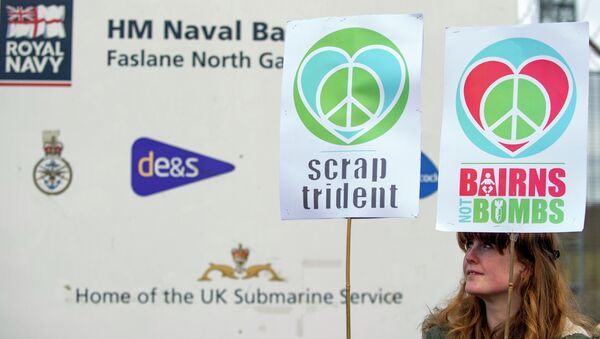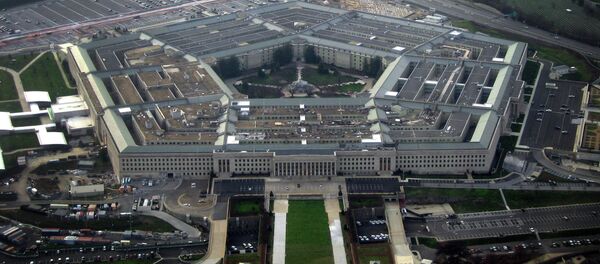Indeed, although Trident is presented as "a purely domestic matter," the point is that British nuclear weapons as well as sophisticated Trident technology are provided directly by Washington or manufactured in accordance with American designs. Furthermore, Britain's nuclear sites are controlled by the US companies Lockheed Martin and Halliburton.
"British [nuclear] subs must regularly visit the US Navy's base at King's Bay, Georgia, for maintenance or re-arming. And since Britain has no test site of its own, it tries out its weapons under US supervision at Cape Canaveral, off the Florida coast," the journalist narrated.
"As a policy statement, it's ludicrous to say that the US can effectively donate a nuclear program to the UK but have no influence on how it is used," Ted Seay, senior policy consultant at the London-based British American Security Information Council (BASIC) emphasized, as quoted by the journalist.
According to Mr. Seay, it would also be "unthinkable" for Britain to launch a unilateral attack against its potential rivals "outside of NATO."
"To say that you could launch a unilateral attack over the heads of NATO and Washington might be theoretically true, but practically speaking it's rubbish," he added, as cited by Jake Wallis Simons.
The journalist also cited the report released by Parliament's Select Committee on Defense in 2006, as stating that the United States if displeased could "cut off the technical support" for the UK's Trident program.
It begs the question what would happen if US-British relations suddenly deteriorated, the journalist noted. However, British policy-makers avoid shedding light on the UK's dependence on the United States, and dismiss the possibility of breaking off relations between London and Washington as nonsense.
"The UK has invested countless billions in its nuclear deterrent, most of it funneled into American coffers. So it is natural that officials emphasize the threat — a possible nuclear holocaust — while downplaying the vulnerabilities of a strategy that puts all Britain's eggs in Uncle Sam's basket," Jake Wallis Simons underscored.
Meanwhile, London continues to soothe itself by the idea that Trident provides the UK with "a seat at the top table" as a nuclear power and ensures the country's security. However, it still turns a deaf ear to the warnings that "the Special Relationship" between Britain and the US could be less reliable than the prospect of global nuclear confrontation.





